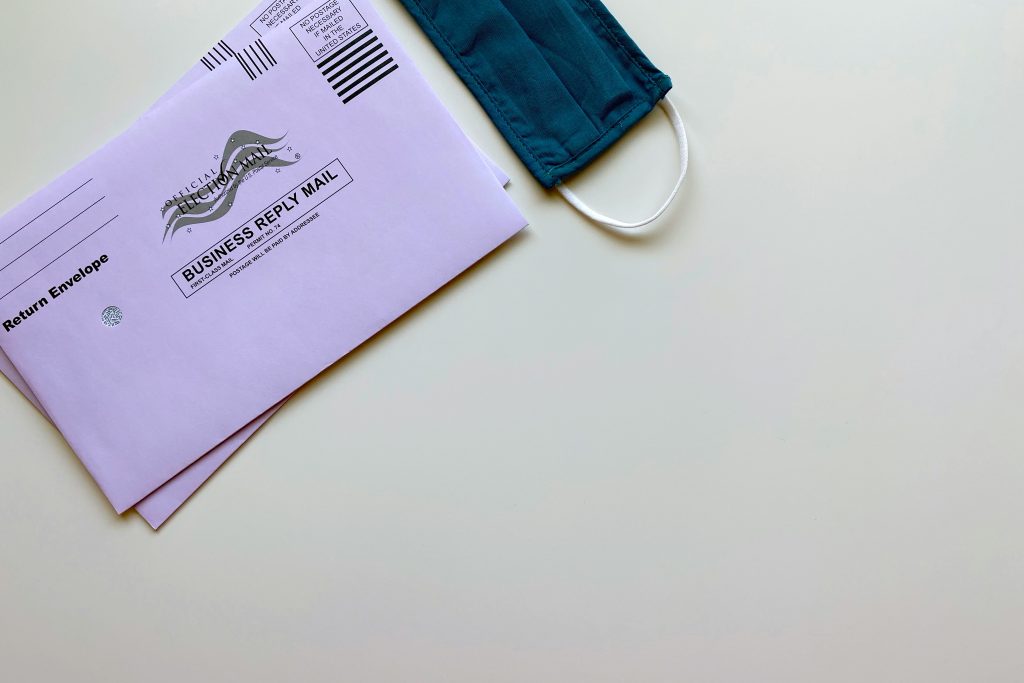
Election seasons are often fraught with tension and anxiety, affecting individuals across the political spectrum. The barrage of news, debates, and social media discussions can lead to significant stress, impacting both mental and physical well-being. It’s not uncommon to experience this type of stress; in fact, the majority of your friends, family, and co-workers experience elevated levels of stress during election season. It’s essential to recognize the importance of managing this stress to maintain overall health. This article aims to provide practical tips for avoiding election and political stress, helping you navigate this turbulent time with a more balanced and mindful approach.
Understanding the symptoms of stress
Recognizing the early signs of stress is crucial for managing it effectively before it escalates. Early stress symptoms often manifest physically, emotionally, and behaviorally. Being mindful of these symptoms allows you to identify when stress is starting to build up. Here are some symptoms you might experience if you are feeling stressed or overwhelmed:
| Physical symptoms: HeadachesMuscle tensionFatigueStomach issues | Emotional symptoms:IrritabilityAnxietyRestlessnessFeelings of being overwhelmed |
| Behavioral symptoms:Changes in sleep patternsDrastic appetite changesIncreased use of substances |
If you notice any of these signs, it’s important to be proactive and take steps to reduce your stress levels. There are a vast array of resources from professionals across the United States that are here to help you identify- and address- stressful experiences. Here are some examples:
- The National Institute of Mental Health (NIMH) provides a stress fact sheet intended for teens and young adults that provides information on stress, anxiety, and ways to cope when you feel overwhelmed.
- The Centers for Disease Control and Prevention (CDC) provides resources to identify and cope with stress in a sustainable, healthy way that will provide you the tools to identify early signs of stress and depression.
- The International Help Guide provides helpful descriptions of stress symptoms, signs, and causes. Their resources identify the common causes and effects of chronic stress and explore different individual experiences.
- The University of California Counseling Center explores stress symptoms and the effects they have on your body and behavior. Their resources focus on election-related stress points and provide tips for coping with election stress.
Why are elections so stressful?
Identifying stress-related symptoms is an important first step to maintaining a healthy headspace. But what causes these symptoms to appear in the first place? One clear component- or primary source- of stress has been national elections by an increasing margin. In fact, the American Psychological Association (APA) reported that more than two-thirds of adults experienced elevated stress levels due to the 2020 United States presidential election. Beyond the election itself, there are various components of stress-inducing occurrences during an election. Identifying the specific triggers that cause election-related stress is a crucial component in managing your mental health. Here are some common sources of stress during election cycles:
- Overwhelming media coverage
Constant news consumption, especially during election periods, can significantly elevate your stress levels. The 24/7 news cycle, filled with sensational headlines and urgent updates, can create a sense of perpetual crisis. This approach to journalism is considered “horse race reporting”, where elections are covered as a competitive game that focuses on winners and losers instead of actual policy positions.
Estimates from the 2016 election have concluded that policy issues only accounted for 10% of overall political news coverage, while journalists and pundits were more focused on polling, campaign strategies, and “probabilistic forecasting” (data analysis to try and predict the outcome of an election). This approach to media coverage leaves voters confused, misinformed, uncertain, and ultimately more stressed during election season.
- Social media platforms
The sheer volume of information and the rapid pace at which it is disseminated can be overwhelming for any individual looking to become more informed during an election. Social media platforms are flooded with constant updates, breaking news, and political commentary, making it challenging for users to process and filter the information.
In the final months- and even years– leading up to the 2020 presidential election, social media users (specifically Facebook, Twitter, Reddit, and Instagram) polled by the Pew Research Center reported exhaustion by the amount of political content consumed on each platform.
In addition, social media often amplifies polarized opinions and contentious debates. Algorithms tend to promote content that generates strong reactions, which can result in a feed dominated by extreme viewpoints and emotionally charged discussions. This can create an environment of heightened tension and conflict, making it difficult for users to escape the negativity and stress associated with political discourse.
- Interactions with family and friends
Personal interactions can also contribute to election stress. Disagreements over political beliefs can result in arguments and hurt feelings, sometimes causing family members to avoid certain topics altogether or even each other. In extreme cases, these conflicts can lead to estrangement, where family members cut off communication to avoid further conflict.
Among friends, political differences can challenge the foundation of mutual respect and understanding. Friends who discover they have opposing political views may struggle to maintain their relationships, especially if discussions turn hostile or judgmental. Social media can exacerbate this issue, as friends might share or comment on political content that sparks disagreements and undermines the sense of camaraderie.
Between family and friends alike, the overarching concern when politics enters a conversation is attaching the individual to all beliefs– or the most divisive components- of a political candidate. This is increasingly prevalent as politics more frequently broaches topics including abortion, sexual assault, racial inequities, and police violence.
- Political and electoral disinformation
Disinformation, or the deliberate spread of false or misleading information, can severely impact public perception and understanding of the electoral process. When voters are exposed to conflicting or false information, it becomes challenging to discern the truth, leading to confusion and anxiety. This constant bombardment of disinformation can make individuals feel overwhelmed and helpless, heightening their stress levels as they struggle to find accurate and reliable information.
Disinformation campaigns often target sensitive issues, such as voter fraud, election integrity, and candidate qualifications, undermining trust in the democratic process. In fact, the Brookings Institution found that 64% of Americans believe that democracy in the United States is in crisis, and that a similar amount believe that disinformation is undermining trust in political institutions.
- Political violence
Finally, political violence, including threats, intimidation, and physical acts of aggression, can create a pervasive sense of fear and insecurity. When instances of political violence occur, whether at rallies, protests, or other political events, they can leave a lasting impact on the public psyche. The threat of violence can deter people from participating in the electoral process, either by voting or engaging in political discussions, out of fear for their safety.
This climate of fear can increase stress as individuals worry about potential violence in their communities and its implications for democracy and public safety. Additionally, witnessing or hearing about political violence can trigger emotional distress, particularly for those who have experienced violence or trauma in the past.
Managing your stress during an election
To be proactive in addressing early stress, it’s important to develop and maintain healthy coping mechanisms. The constant influx of information, divisive rhetoric, and high stakes can make the election season particularly overwhelming. However, there are practical strategies that can help you navigate this period more calmly and resiliently. Here are some recommendations for reducing anxiety during an election period:
- Acknowledge your own feelings
Your feelings and mood might be quite different during an election cycle. Whatever you may feel- whether it be anger, sadness, anxiety, or anxiety- be aware of these feelings and give them agency. The importance of owning your feelings instead of minimizing or dismissing them provides important directions on what actions you can take to address them.
By acknowledging the way elections and electoral politics make you feel, you provide yourself the opportunity to create a plan- or roadmap- on how to talk about and address these challenges. Giving yourself agency can set you up to take action, set boundaries, and make a difference.
- Stay informed, not overwhelmed
Staying informed and engaged without becoming overwhelmed involves setting boundaries for how much information you consume and taking breaks when necessary. Remember that while you can’t control the election outcome, you can control your response and actions.
Setting specific times for checking news updates can help manage this stress. For instance, limiting news intake to certain times of the day, such as in the morning and evening, can provide mental breaks and reduce anxiety. Taking time for yourself is never selfish; instead, it helps clear your mind and better focus when you return.
It’s also wise to avoid sensationalist news sources that may exaggerate or dramatize events. Instead, seek out balanced information from reputable sources that provide in-depth analysis rather than just headlines. This approach can help you stay informed without feeling overwhelmed.
- Avoid or limit social media
Social media can amplify stress and anxiety, particularly during election seasons. The constant stream of updates, opinions, and debates can create an environment of heightened tension. Managing social media use is critical to reducing stress. Consider using apps that limit the time you spend on social media.
Unfollowing or muting accounts that contribute to stress is another effective strategy. Surround yourself with positive content and supportive online communities that uplift rather than drain your energy. Taking periodic breaks from social media can also provide much-needed respite from the constant barrage of information.
- Finding self-care and stress-relieving activities
Engaging in activities that help reduce stress is essential for maintaining mental health. Physical exercise, such as walking, running, or yoga, can have profound benefits for both the body and mind. Regular physical activity releases endorphins, which are natural mood enhancers, and helps reduce the levels of stress hormones in the body.
Meditation and mindfulness practices can also be incredibly effective in managing stress. Techniques such as deep breathing, progressive muscle relaxation, and guided imagery can calm the mind and improve overall well-being. Numerous resources are available online, including apps and videos, to guide you through these practices.
Keeping a journal to track your stress levels and triggers can also help you recognize patterns and take steps to mitigate stress before it becomes overwhelming. Engaging in enjoyable activities and maintaining social connections with supportive friends and family further enhances your ability to manage stress proactively.
Political conversations with family and friends
When it comes to family and friends, separating the political viewpoints from the person has never been more challenging. While the belief that a person’s politics does not define them is productive as high-level advice, this approach is often the exact opposite in practice and fails to acknowledge the divisive- and often uncompromising- issues driving the current political climate.
Discussing political issues with family and friends, especially on divisive and morally uncompromising topics such as abortion, religion, immigration, and other social issues, presents several challenging questions:
| Questions | Recommendations |
| How can I set boundaries when engaging in political conversation? | Set ground rules: Before delving into a political discussion, set ground rules to ensure a respectful and productive conversation. Agree to listen actively, avoid interrupting, and refrain from personal attacks or inflammatory language. Setting these expectations can create a safer space for dialogue. Find a neutral space: If discussions consistently lead to conflict, consider seeking mediation from a neutral third party or discussing these topics in a neutral setting. A mediator can help facilitate the conversation and ensure both parties feel heard and respected. |
| How can I seek common ground without compromising my own values? | Listen to understand: Approach the conversation with the goal of understanding the other person’s perspective rather than trying to change their mind. Ask open-ended questions, listen actively, and acknowledge their feelings and beliefs. This can help build empathy and reduce defensiveness. Find shared experiences: Identify areas of agreement or shared values. Finding common ground can help de-escalate tension and create a foundation for more constructive discussions. For example, even if you disagree on specific policies, you might share a common concern for community safety or social justice. |
| How can I approach and debate a potentially divisive political topic? | Politics is local: Base your arguments on facts and share personal experiences that illustrate your point of view. Personal stories can be powerful and relatable, helping to humanize the discussion. Focus on what you can see in your community. Give space for your views: Frame your points using “I” statements to express your feelings and perspectives without sounding accusatory. For example, say “I feel concerned about…” rather than “You’re wrong because…”. This approach can help keep the conversation focused on personal experiences and reduce defensiveness. |
| What are some conversational practices to avoid? | Generalizations: Avoid making sweeping generalizations or assumptions about groups of people. Focus on specific issues and behaviors rather than attributing characteristics to entire groups. Defensiveness and combativeness: Interrupting someone while they are speaking can signal disrespect and a lack of interest in their perspective. Allow others to express their thoughts fully before responding, and practice active listening to show that you value their input. Being overly defensive can hinder open communication. If you feel attacked or challenged, try to respond calmly rather than reacting emotionally. |
| How do you approach a conversation with someone who believes political disinformation? | Addressing feelings: Recognize their feelings separate from the political topic. Many people turn to certain sources of information because they resonate with their experiences or fears. Acknowledging their emotions can help reduce defensiveness. Critical thinking: Instead of directly challenging their beliefs, ask questions that encourage them to think critically about the information they have consumed. Find your answers by asking about the process of reaching that belief. Patience and respect: Avoid confrontational language or tactics, as these can lead to increased defensiveness and resistance. Maintain a calm and respectful demeanor throughout the conversation. Understand that changing someone’s deeply held beliefs takes time, and it may not happen in a single conversation. |
| When should I move on? | Feeling isolated: Political conversations with friends and family can leave you feeling alone and can sometimes result in unproductive, lingering feelings of isolation. Social support is vital during stressful times. Connecting with friends, family, or support groups can provide emotional comfort and a sense of belonging. Reach out to loved ones to share your feelings and experiences, and engage in positive, non-political conversations to lift your spirits. Lacking empathy: Despite the best efforts, many political debates result in name-calling, personal insults, and attacks on a person’s moral character. When this happens- as in the need to defend your own values versus a policy stance- it may be in your best interests to end the conversation. |
Take action to make an impact
Taking actionable steps during elections, such as voting and canvassing, can significantly alleviate election stress. Engaging in the electoral process provides individuals with a sense of agency and purpose. Instead of feeling overwhelmed by the barrage of political news and debates, taking positive action allows individuals to channel their energy into something constructive. This proactive approach can help shift the focus from anxiety and worry to empowerment and involvement.
When individuals participate in elections, they become part of a larger community working toward common goals. Whether it’s advocating for specific policies or supporting candidates that align with their values, this communal effort fosters a sense of belonging and solidarity. It can be reassuring to know that others share similar concerns and are also actively seeking change. This collective action not only helps mitigate feelings of isolation but also reinforces the idea that one’s voice matters and can lead to tangible outcomes.
Ultimately, taking actionable steps during elections transforms stress into empowerment, allowing individuals to feel more connected to the democratic process and their communities. Here are some helpful participatory resources to get started:
- Vote: Participate in local, state, and national elections to make your voice heard. Make sure you are registered to vote here: https://www.nass.org/can-I-vote
- Volunteer for campaigns: Offer your time to support candidates or issues you care about by canvassing, phone banking, or organizing events. Locate campaign volunteer opportunities by visiting your political party’s local chapter webpage.
- Join a political group: Connect with like-minded individuals by joining local political organizations, advocacy groups, or community coalitions. Voter and political engagement opportunities can be found here: https://www.politicalpartydb.org/
- Educate yourself: Research candidates, their platforms, and relevant issues to feel more informed and confident in your choices. Comprehensive candidate information can be found here: https://ballotpedia.org/Main_Page
- Promote voter registration: Encourage others to register to vote and participate in the electoral process. Promote voter registration and locate your voter status here: https://www.vote.org/
- Become an election judge: Election judges are responsible for helping to facilitate the voting process on election day. They set up polling places, verify registration, and count votes. Visit here to learn more: https://www.idealist.org/en
It’s okay to ask for help
If election-related stress becomes unmanageable, it’s important to seek help from mental health professionals. Therapists and counselors can provide strategies and support to help you cope with anxiety and stress. Finding a therapist or counselor can be done through referrals from your primary care provider, mental health organizations, or online directories. Talking to a professional about your stress can provide relief and equip you with tools to handle anxiety more effectively. Don’t hesitate to reach out for help if you need it.
- Crisis Text Line: Text COURAGE to 741741
- Suicide Prevention Lifeline: 800-273-8255
- Trevor Lifeline (LGBTQ youth under 25): 866-488-7386 or text START to 678-678
- National Alliance on Mental Illness (NAMI): nami.org
- American Psychological Association (APA): apa.org
- Headspace (Mindfulness and Meditation App): headspace.com
Anxiety and Depression Association of America (ADAA): adaa.org

